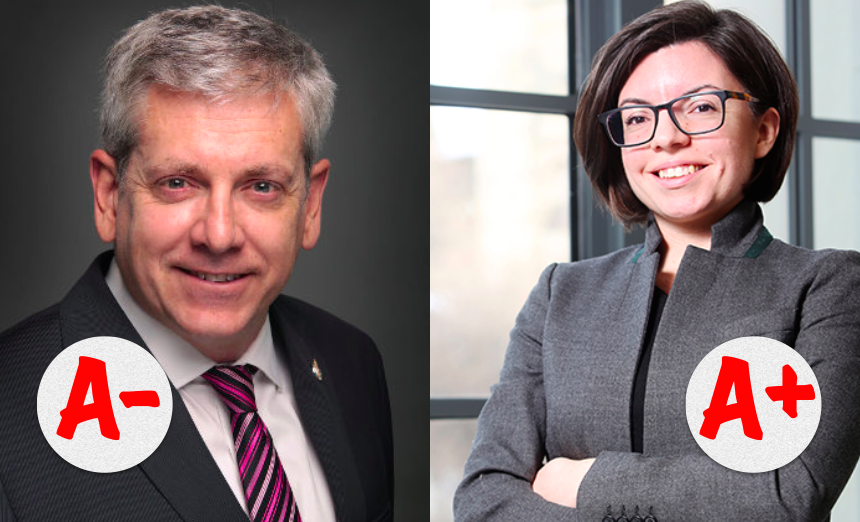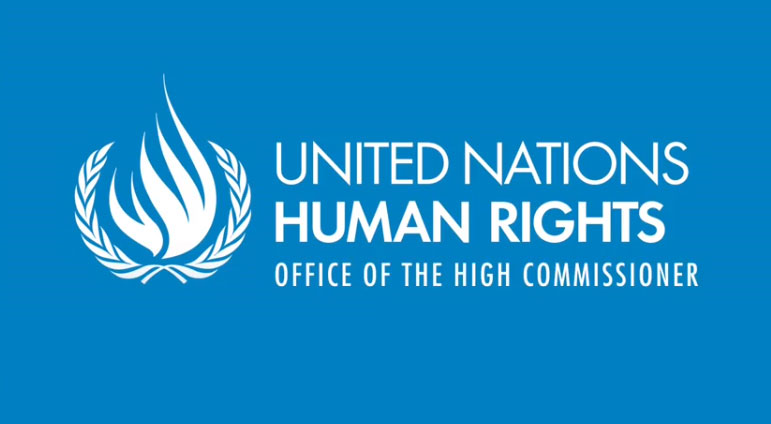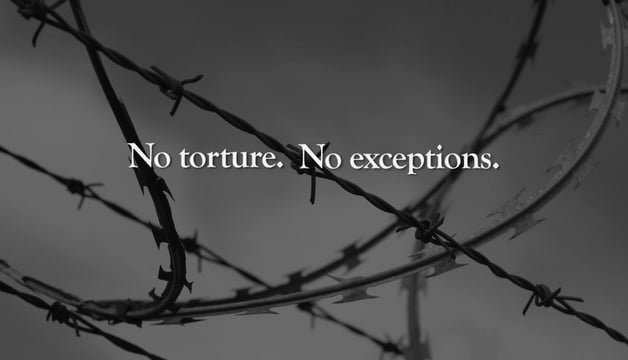
This summer, we sent a questionnaire to the teams of the four New Democratic Party candidates in the federal leadership race. Our goal is to inform Canadians of the candidates’ positions on national security and human rights so they can make an informed decision if they vote in the NDP leadership race. To vote in the first round you must cast your vote online before 2 PM on October 1st. These answers will also be helpful for holding the new NDP leader accountable.
We have received answers from Niki Ashton and Charlie Angus. Here they are below. If we receive answers from Jagmeet Singh and Guy Caron, we will update the page. If you would like to know their national security positions, feel free to email their teams and request that they send us their answers to our questionnaire: info@jagmeetsingh.ca, info@guycaron.ca
Summary: We based our grading on how close the candidates’ positions were to ICLMG’s own positions. Charlie Angus’ and Niki Ashton’s answers were fairly similar. The main differences between their positions are to be found in their comments on the Terrorist Entities Listing (under the section on Bill C-59), Deradicalization, their overall perception of “war on terror” and their vision guiding the fight against terrorism.
Place your cursor on the X and wait for more comments to appear (if there are any).
NIKI ASHTON: A+
Questions
|
Yes
|
No
|
|
C-51 (ANTI-TERRORISM ACT, 2015)
|
| Do you think Bill C-51 should be fully repealed? Why? |
X |
|
| BILL C-59 (AN ACT RESPECTING NATIONAL SECURITY MATTERS) |
| Are you in favor of the creation of the new National Security Review Agency? |
X |
|
| Are you in favor of the creation of the new Intelligence Commissioner? |
X |
|
| Are you in favor of the extension of CSE’s powers? |
|
X |
| Are you in favour of the legalization of CSIS’s retention of Canadians’ metadata, even if it is unrelated to any criminal investigation? |
|
X |
| Do the changes to SCISA and the definition of threats to national security go far enough? |
|
X |
| Do you support the Terrorist Entities Listing? |
|
X |
| What is your opinion on the use of peace bonds and preventative arrest for national security purposes? |
See |
comments |
| NO FLY LIST |
| Are you in favour of abolishing the no-fly list? |
X |
|
| TORTURE |
|
|
| Do you think there should be a public inquiry into Canada’s transfer of Afghan detainees to Afghan authorities? |
X |
|
| SECURITY CERTIFICATES |
| Do you think the security certificate regime should be abolished? |
X |
|
| DERADICALIZATION |
| Do you agree with the government’s current plans on deradicatlization, including the creation of the Office of the Community Outreach and Counter-Radicalization Coordinator? |
|
X |
| There are experts who have stated that deradicalization programs stigmatize Muslims further, and that it can create a chill on speech and activism considered “radical”. Do you agree? If you do, what would be your solution? |
X |
|
| NORTH AMERICAN SECURITY PERIMETER |
| Do you support the Beyond the Border agreement and the integration of Canadian and US border security? |
|
X |
| PRECLEARANCE AND PRIVACY AT THE BORDER |
| Do you support Bill C-23? Why? |
|
X |
| Should border agents be allowed to search electronic devices and access social media accounts of people traveling to Canada? |
|
X |
| MASS SURVEILLANCE AND METADATA |
| Do you support the mass collection of metadata? |
|
X |
| Do you think mass government surveillance should be forbidden? |
X |
|
| CRIMINALIZATION OF DISSENT |
| Do you think more should be done to effectively protect freedom of expression and dissent in Canada from the impact of national security and anti-terrorism laws? |
X |
|
| ENCRYPTION |
| Do you believe individuals should have access to strong encryption? |
X |
|
| Should government agencies be granted special access through backdoors? |
|
X |
| LAWFUL ACCESS |
| Do you support changes to lawful access rules that would compel companies to give a subscriber’s information or metadata to the government without a warrant? |
|
X |
| Do you think that companies should be compelled to make their systems compatible with law enforcement’s interception tools? |
|
X |
What is your overall perception of the “war on terror”?
The “war on terror” has been a moral, political, and humanitarian disaster. By supporting and participating in aggressive military endeavors, led by the US and NATO, we have contributed only to more death and devastation in the Middle East and elsewhere, without making any progress towards peace and security. It is time to radically reorient our foreign policy to be a force for peace in the world, in solidarity with the oppressed, and not an accessory of empire.
What is your general vision that would guide the fight against terrorism?
We have to recognize that military interventions have made the problem of terrorism worse, not better. For too long we have relied on the use of imperial power and violence to intervene in the affairs of countries overseas, causing significant harm to civilians and destroying the infrastructure of civil society. This has only increased the resentment and anger that fuels ideologies and organizations engaged in terroristic violence. We must move away from intervention and militarism, and focus our foreign policy on actions that can increase quality of life and goodwill: humanitarian assistance, support for refugees, and solidarity with oppressed groups.
CHARLIE ANGUS: A-
Questions
|
Yes
|
No
|
|
C-51 (ANTI-TERRORISM ACT, 2015)
|
| Do you think Bill C-51 should be fully repealed? Why? |
X |
|
| BILL C-59 (AN ACT RESPECTING NATIONAL SECURITY MATTERS) |
| Are you in favor of the creation of the new National Security Review Agency? |
X |
|
| Are you in favor of the creation of the new Intelligence Commissioner? |
X |
|
| Are you in favor of the extension of CSE’s powers? |
|
X |
| Are you in favour of the legalization of CSIS’s retention of Canadians’ metadata, even if it is unrelated to any criminal investigation? |
|
X |
| Do the changes to SCISA and the definition of threats to national security go far enough? |
|
X |
| Do you support the Terrorist Entities Listing? |
|
X |
| What is your opinion on the use of peace bonds and preventative arrest for national security purposes? |
See |
comments |
| NO FLY LIST |
| Are you in favour of abolishing the no-fly list? |
X |
|
| TORTURE |
|
|
| Do you think there should be a public inquiry into Canada’s transfer of Afghan detainees to Afghan authorities? |
X |
|
| SECURITY CERTIFICATES |
| Do you think the security certificate regime should be abolished? |
X |
|
| DERADICALIZATION |
| Do you agree with the government’s current plans on deradicatlization, including the creation of the Office of the Community Outreach and Counter-Radicalization Coordinator? |
See |
comments |
| There are experts who have stated that deradicalization programs stigmatize Muslims further, and that it can create a chill on speech and activism considered “radical”. Do you agree? If you do, what would be your solution? |
See |
above |
| NORTH AMERICAN SECURITY PERIMETER |
| Do you support the Beyond the Border agreement and the integration of Canadian and US border security? |
|
X |
| PRECLEARANCE AND PRIVACY AT THE BORDER |
| Do you support Bill C-23? Why? |
|
X |
| Should border agents be allowed to search electronic devices and access social media accounts of people traveling to Canada? |
|
X |
| MASS SURVEILLANCE AND METADATA |
| Do you support the mass collection of metadata? |
|
X |
| Do you think mass government surveillance should be forbidden? |
X |
|
| CRIMINALIZATION OF DISSENT |
| Do you think more should be done to effectively protect freedom of expression and dissent in Canada from the impact of national security and anti-terrorism laws? |
X |
|
| ENCRYPTION |
| Do you believe individuals should have access to strong encryption? |
X |
|
| Should government agencies be granted special access through backdoors? |
|
X |
| LAWFUL ACCESS |
| Do you support changes to lawful access rules that would compel companies to give a subscriber’s information or metadata to the government without a warrant? |
|
X |
| Do you think that companies should be compelled to make their systems compatible with law enforcement’s interception tools? |
|
X |
What is your overall perception of the “war on terror”?
There are fundamental problems with Canada’s role in this open-ended conflict. Keeping citizens safe is the first job of any government, but we need an approach based on judicial oversight rather than executive discretion. Instead of cracking down on individual civil liberties and taking a broad-based, evidence-light approach to widening the scope of the intelligence and security agencies’ mandates, we needs to take a more holistic approach.
What is your general vision that would guide the fight against terrorism?
Canada should build bridges to different communities, take a proactive, independent policy in regions of conflict, limit radicalization by giving young people opportunities and hope for the future, and take a more proactive approach in defusing the rising phenomenon of right-wing paramilitary/militia organizations. We also face major challenges overall with cyber espionage, and are behind in protecting the data of Canadians and the government.
Since you’re here…
… we have a small favour to ask. Here at ICLMG, we are working very hard to protect and promote human rights and civil liberties in the context of the so-called “war on terror” in Canada. We do not receive any financial support from any federal, provincial or municipal governments or political parties.
You can become our patron on Patreon and get rewards in exchange for your support. You can give as little as $1/month (that’s only $12/year!) and you can unsubscribe at any time. Any donations will go a long way to support our work. You can also make a one-time donation or donate monthly via Paypal by clicking on the button below. On the fence about giving? Check out our Achievements and Gains since we were created in 2002. Thank you for your generosity! You can also make a one-time donation or donate monthly via Paypal by clicking on the button below. On the fence about giving? Check out our Achievements and Gains since we were created in 2002. Thank you for your generosity!

|





 Ottawa – “Canada has made obligations under international agreements to in no way support torture, and has made public statements to that effect. This includes when it comes to information and intelligence linked to torture,” says Tim McSorley, the ICLMG’s national coordinator.
Ottawa – “Canada has made obligations under international agreements to in no way support torture, and has made public statements to that effect. This includes when it comes to information and intelligence linked to torture,” says Tim McSorley, the ICLMG’s national coordinator.